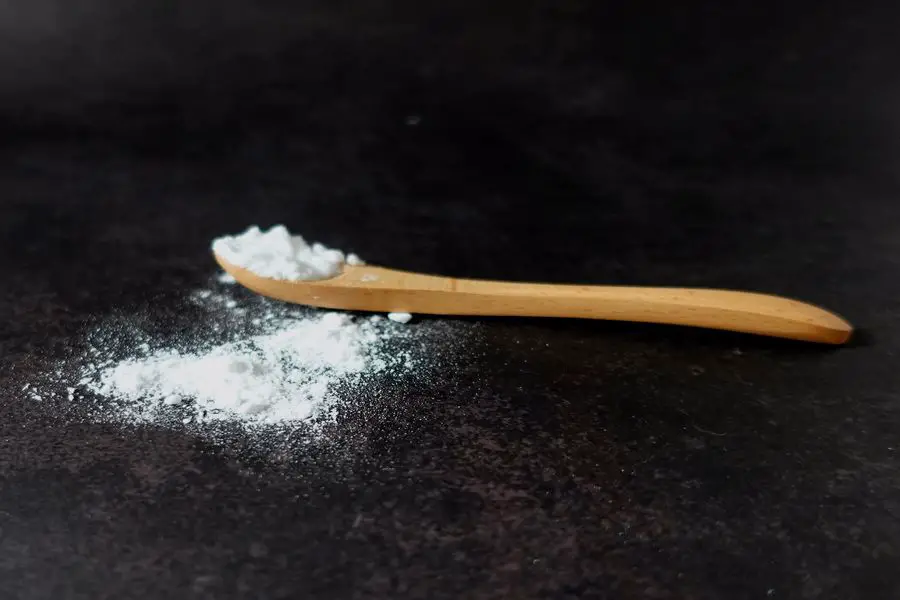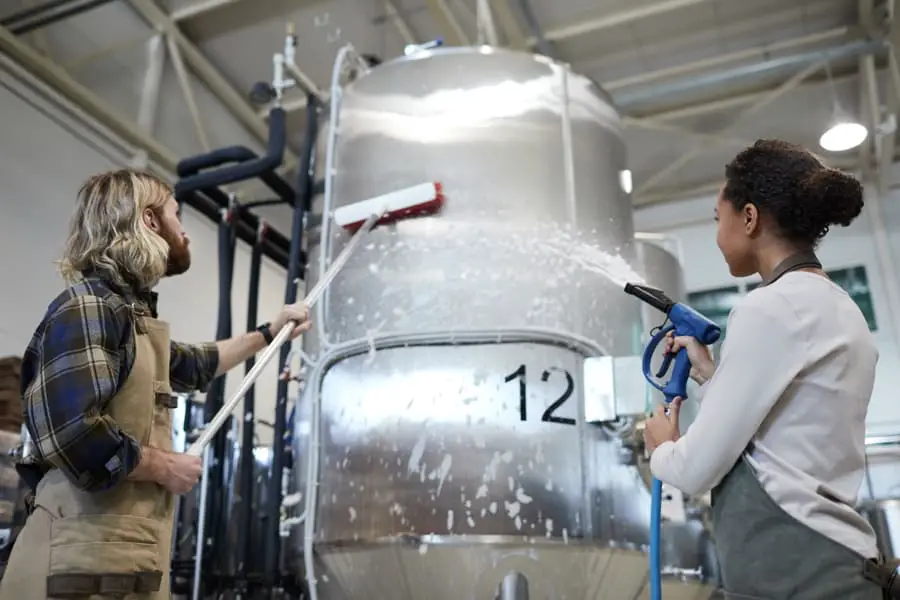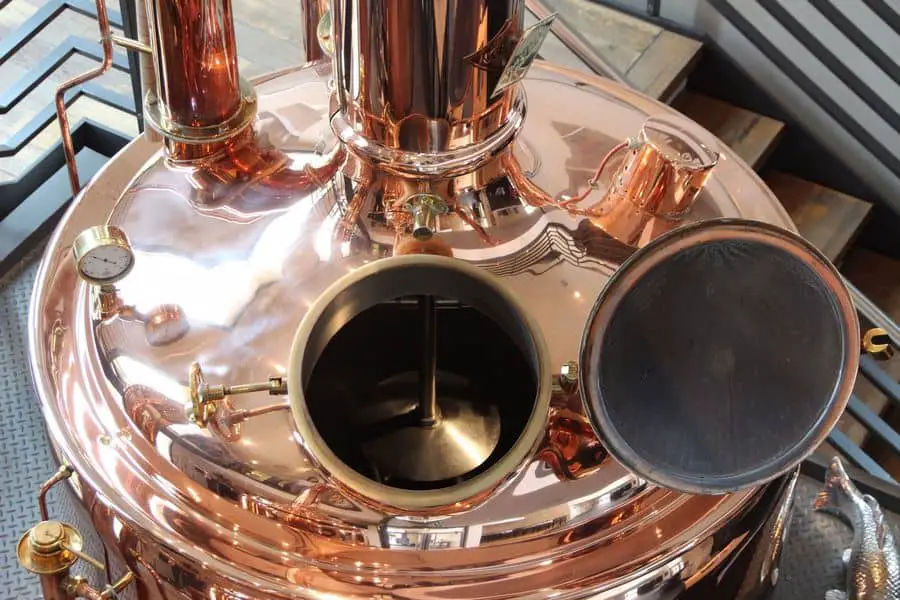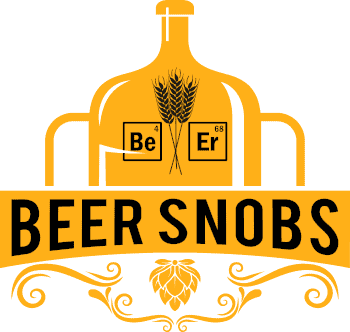If you buy something through a link in our posts, we may get a small share of the sale.
Brewing is an ancient process that has been refined over centuries. The basic steps are still the same. However, with the advent of modern equipment and chemicals, the quality of the final product has improved. One of the most critical tools is a good PBW solution. So, what is PBW?
Contents
What Is PBW?
PBW (Powdered Brewery Wash) is an alkaline cleaner used in professional breweries to clean brewing equipment, and bottle lines. It is an all-purpose cleaner that is effective in removing beer stone, protein deposits, and other brewing residues.

PBW is non-toxic and biodegradable. It is safe to use on all types of brewing equipment, including stainless steel, glass, plastic, and rubber. It is also safe for use on food contact surfaces. PBW can be used as a soak cleaner or a spray cleaner.
Many brewers prefer to use PBW because it is less corrosive than other cleaners, such as sulfuric acid. PBW also effectively removes beer stone, mineral deposits, and protein buildup. It also leaves a residual sanitizer behind, which helps to reduce the likelihood of bacterial contamination.
How Powdered Brewery Wash Works
PBW is an alkaline cleaner that contains sodium metasilicate. Sodium metasilicate is a salt that is derived from silicic acid. When PBW is dissolved in water, it forms a solution with a pH of 11.5. The high pH of PBW creates an environment that is hostile to bacteria and yeast.
PBW also contains surfactants, which help break down the bonds between dirt and grime and the surfaces they are attached to. This makes it easier to remove stubborn buildup. The oxygen bleach in PBW also helps to brighten and whiten surfaces.
PBW is most effective when used at a temperature of 120-160 degrees Fahrenheit. The high temperature speeds up the chemical reaction when PBW comes into contact with dirt and grime.
What Are the Active Components in PBW?
PBW is made up of several ingredients, including:
- Sodium metasilicate: This salt is derived from silicic acid and gives PBW its high pH.
- Oxygen bleach: This ingredient helps to brighten and whiten surfaces.
- Surfactants: This helps break down the bonds between dirt and grime and the surfaces they are attached to.
- Sodium Bicarbonate: A mild abrasive that helps remove stubborn buildup.
PBW also contains water and other ingredients that help to dissolve the sodium metasilicate and oxygen bleach. It is crucial to have these other ingredients because sodium metasilicate and oxygen bleach are both insoluble in water.
How to Clean With PBW
Now that you know a bit about what PBW is and how it works, let’s look at how to use it to clean your brewing equipment. It can be used as a soak cleaner or a spray cleaner.
Soak Cleaning
Soak cleaning is the most common way to use PBW. Simply dissolve the desired amount of PBW in hot water and soak the equipment for 30 minutes to one hour. Be sure to rinse the equipment thoroughly with clean water after soaking.
After that, you should sanitize the equipment before using it. This step is important because PBW does not kill bacteria or yeast used in brewing. It only removes them from the surface of the equipment.
Spray Cleaning
If you need to clean a large area, such as a brewing vessel or beer bottle line, you can use PBW as a spray cleaner. Simply dissolve the desired amount of PBW in hot water and pour it into a spray bottle. Spray the solution onto the equipment and allow it to soak for 30 minutes to one hour. Rinse the equipment with clean water after soaking.

The following are simplified steps on how to cleanse your equipment with PBW:
- Disperse PBW in hot water according to the instructions on the bottle
- Soak or spray the equipment to be cleaned
- Let the cleaner work for the recommended amount of time
- Rinse with hot water and dry
Ensure that you do not miss any spots, especially crevices and tight areas, to avoid bacteria buildup. Though PBW is effective as a standalone cleaner, it’s always best to have a complete cleaning regimen for your home brewing equipment.
How Much PBW Do You Need?
The amount of PBW you’ll need will depend on the equipment you’re cleaning and the amount of buildup. Generally, one to three ounces of PBW per gallon of water is sufficient for most cleaning applications.
If you’re using PBW as a soak cleaner, you’ll need enough solution to cover the equipment completely. For small items, such as bubbler airlocks, you can dissolve the PBW in a bucket of hot water. For larger items, such as a fermenter, you’ll need to make a larger batch of solutions.
To make a larger batch of the solution, simply increase the amount of PBW and water in proportion to the size of the equipment you’re cleaning. For example, if you’re cleaning a 10-gallon fermenter, you’ll need 10 ounces of PBW and 10 gallons of water.
What Materials Can You Clean With PBW?
The advantage of PBW is that you can use it on various materials. It is multipurpose, and apart from being able to use it on your regular brewing equipment, such as kettles and fermenters, you can also use it to clean your:
- Bottle lines
- Tubes
- Hoses
- Racks
- Beer Bottle Cappers
- Label Peelers
PBW is an effective cleaner for all these materials, and it will not damage or etch the surfaces. Therefore, it is safe to use on your brewing equipment and home appliances, such as your dishwasher and washing machine.
PBW is also safe to use on your food-contact surfaces, such as your countertops, cutting boards, and utensils.
Is PBW a Sanitizer?
It is a question that brewers often ask. PBW is not a sanitizer; it is a cleaner. However, it is essential to note that PBW will remove unwanted bacteria and microorganisms from your surfaces.

Therefore, it is important to follow up with a sanitizer after using PBW. This will ensure that your surfaces are clean and sanitized.
What Are the Benefits of PBW?
Homebrewers and commercial brewers love PBW because it’s an effective, all-purpose cleaner. Some of the benefits of PBW include:
It’s Safe to Use
PBW is safe to use on all surfaces, including aluminum, stainless steel, and glass. It will not etch or damage these surfaces. It is safe for you and the environment.
It’s Versatile
PBW can be used as a soak cleaner or a spray cleaner. It’s also effective at cleaning bottle lines and brewing vessels difficult to clean with other cleaners. This makes it ideal for both home and commercial brewers.
It’s Easy to Use
PBW is very easy to use. Simply dissolve it in hot water and let it do its job. There’s no need to scrub or soak for hours. All you need is a few minutes, and PBW will do the rest.
It’s Economical
PBW is very economical. A little goes a long way. You can use it to clean everything from your brew kettle to your bottle line. Therefore, it will save you time and money in the long run.
Related Questions
Can You Use PBW on Plastic?
Yes, you can use PBW on plastic. PBW is safe on your plastic surfaces and will not damage them. It is also safe on your skin, so there is no need to worry about getting it on your hands.
Is It Necessary to Rinse PBW?
Yes, it is necessary to rinse all surfaces thoroughly with hot water after using PBW. This is because PBW is a powerful cleaner and can leave behind a residue if not rinsed properly.
Always rinse your surfaces with hot water after using PBW. This will ensure that your surfaces are clean and free of any residue that could cause problems.
Can I Rinse PBW With Cold Water?
Yes, you can rinse PBW with cold water. However, it is effective when used with hot water. This is because the hot water will help to dissolve the cleaner and make it more effective.
Conclusion
PBW is one of the effective ways to clean your materials. It is safe, easy to use, and economical. You can use it on various surfaces without damaging them. Therefore, it is an ideal choice for brewers and can save you time and money in the long run.

